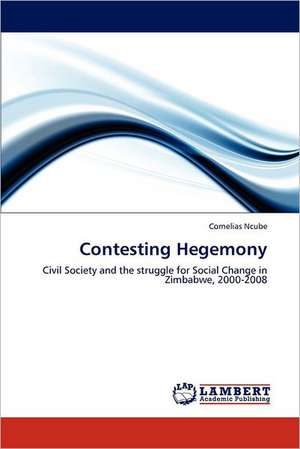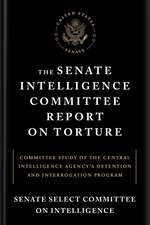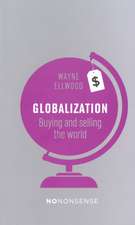Contesting Hegemony
Autor Cornelias Ncubeen Limba Engleză Paperback – 11 sep 2012
Preț: 487.47 lei
Preț vechi: 529.86 lei
-8% Nou
Puncte Express: 731
Preț estimativ în valută:
93.30€ • 100.71$ • 78.23£
93.30€ • 100.71$ • 78.23£
Carte tipărită la comandă
Livrare economică 19 aprilie-03 mai
Preluare comenzi: 021 569.72.76
Specificații
ISBN-13: 9783659239045
ISBN-10: 3659239046
Pagini: 336
Dimensiuni: 152 x 229 x 19 mm
Greutate: 0.49 kg
Editura: LAP LAMBERT ACADEMIC PUBLISHING AG & CO KG
Colecția LAP Lambert Academic Publishing
ISBN-10: 3659239046
Pagini: 336
Dimensiuni: 152 x 229 x 19 mm
Greutate: 0.49 kg
Editura: LAP LAMBERT ACADEMIC PUBLISHING AG & CO KG
Colecția LAP Lambert Academic Publishing
Notă biografică
Cornelias Ncube is a Postdoctoral Fellow in the School of Politics at the University of KwaZulu-Natal, South Africa. Studied Public Policy (Univ. of Birmingham)& International Development (Univ. of Leeds). Specialises in civil society, democratic governance, elections,conflict transformation, transitional justice,state-building, and peace-building.











